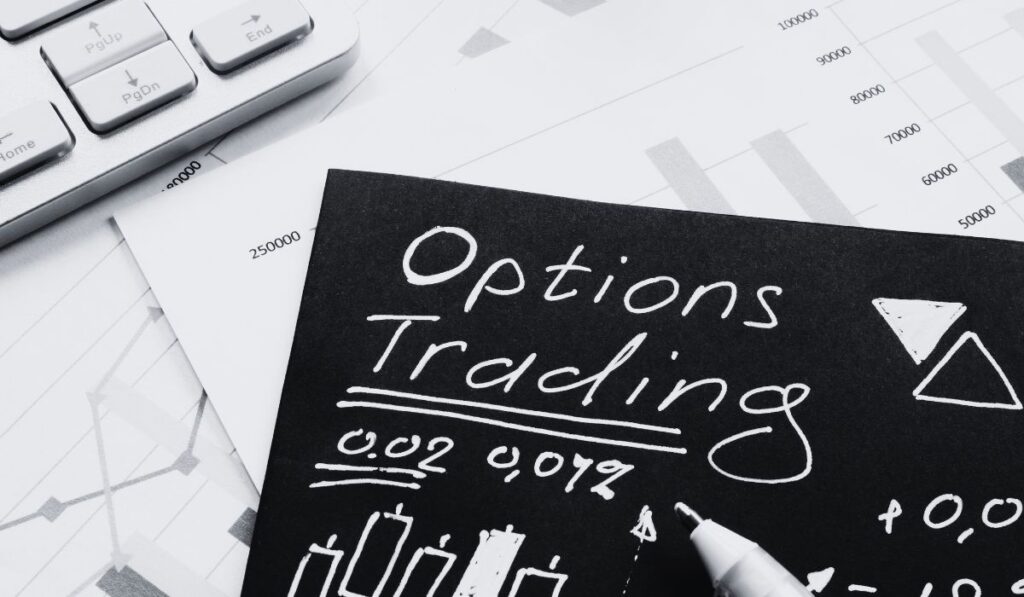Understanding Forex Trading

How to make money with forex trading – Forex trading, short for foreign exchange trading, is the act of buying and selling currencies to profit from exchange rate fluctuations. It is the largest and most liquid financial market globally, with trillions of dollars changing hands every day.
Currency Pairs
Currency pairs are the foundation of forex trading. They represent the exchange rate between two currencies. For instance, the EUR/USD pair indicates the value of the euro (EUR) against the US dollar (USD). When you buy a currency pair, you are essentially buying one currency while simultaneously selling the other.
Pips
Pips, short for “points in percentage,” are the smallest unit of change in an exchange rate. They are crucial for calculating profits and losses in forex trading. A pip is typically the fourth decimal place in a currency pair.
For example, a change from 1.1234 to 1.1235 in the EUR/USD pair represents a one-pip movement.
Leverage
Leverage allows traders to control a larger position in the market than their initial investment. Forex brokers offer leverage ratios, such as 1:50 or 1:100, which magnify your trading power. For instance, with a 1:50 leverage, a $1,000 investment gives you control over $50,000 worth of currency.
However, leverage also amplifies potential losses.
Types of Forex Orders
Understanding different types of orders is crucial for executing trades effectively.
Market Orders
Market orders are executed immediately at the current market price. They are suitable for traders seeking to enter a trade quickly, but they may not always get the desired price.
Limit Orders
Limit orders are placed at a specific price or better. They allow traders to buy a currency at a lower price or sell it at a higher price than the current market rate.
Stop-Loss Orders
Stop-loss orders are used to limit potential losses on a trade. They are placed at a predetermined price level, automatically exiting a trade if the market moves against the trader’s position.
Factors Influencing Forex Prices
Several factors can influence forex prices, making it a dynamic and complex market.
Economic Indicators
Economic indicators, such as inflation rates, unemployment figures, and GDP growth, provide insights into the health of an economy and can significantly impact currency values. For example, a strong economic report might boost a currency’s value.
Political Events
Political events, such as elections, policy changes, and geopolitical tensions, can also influence forex prices. For instance, a political instability in a country might weaken its currency.
Market Sentiment
Market sentiment, or the overall feeling of traders towards a currency, plays a crucial role in price movements. If traders are optimistic about a currency’s future prospects, it might appreciate in value. Conversely, pessimism can lead to depreciation.
Choosing a Forex Broker

Choosing the right forex broker is crucial for your trading success. A good broker provides you with a reliable trading platform, competitive fees, and excellent customer support. But with so many brokers available, how do you find the best one for your needs?
Factors to Consider When Choosing a Forex Broker
Here are some key factors to consider when choosing a forex broker:
- Fees: Forex brokers charge various fees, including spreads, commissions, and inactivity fees. It’s essential to compare these fees across different brokers to find the most cost-effective option.
- Trading Platforms: The trading platform is your interface for accessing the forex market. Look for a platform that is user-friendly, offers advanced charting tools, and provides real-time market data.
- Customer Support: Reliable customer support is essential for resolving any issues you may encounter. Choose a broker with a responsive and helpful support team available through multiple channels, such as phone, email, and live chat.
- Regulation: Ensure that the forex broker is regulated by a reputable financial authority, such as the Financial Conduct Authority (FCA) in the UK or the Commodity Futures Trading Commission (CFTC) in the US. This provides an additional layer of protection for your funds.
Types of Forex Brokers
Forex brokers can be categorized into different types, each offering distinct features and services.
Making money with forex trading is all about finding the right opportunities and executing trades effectively. To do that, you need a solid understanding of forex trading strategies, especially if you’re just starting out. Check out this great resource on Forex trading strategies for beginners to learn about popular methods like trend trading, scalping, and news trading.
Once you’ve got a good grasp of these strategies, you can start practicing and refining your skills to become a more profitable trader.
- Market Makers: Market-making brokers act as counterparties to your trades. They profit from the spread between the bid and ask prices.
- Electronic Communication Networks (ECNs): ECN brokers connect traders directly to other market participants, eliminating the need for a middleman.
- Dealing Desk Brokers: Dealing desk brokers act as intermediaries between traders and the market. They may execute trades manually or electronically.
Tips for Selecting a Reputable and Reliable Forex Broker
Here are some tips for selecting a reputable and reliable forex broker:
- Read Reviews: Check online reviews from other traders to get an idea of the broker’s reputation and customer satisfaction.
- Look for Regulation: Ensure a reputable financial authority regulates the broker.
- Test the Trading Platform: Open a demo account to try out the trading platform and see if it meets your needs.
- Consider Customer Support: Contact customer support to assess their responsiveness and helpfulness.
Understanding the Regulatory Environment of Forex Brokers
The regulatory environment of forex brokers plays a vital role in protecting traders and ensuring fair market practices.
- Regulation Provides Protection: Regulatory bodies set rules and standards for forex brokers, such as minimum capital requirements and client fund segregation.
- Ensures Fair Trading: Regulation helps prevent market manipulation and ensure traders have access to accurate and reliable market information.
- Provides Dispute Resolution: Regulatory bodies offer dispute resolution mechanisms for traders who have issues with their brokers.
Developing a Trading Strategy

A trading strategy is a predefined set of rules that Artikels your approach to trading forex. It helps you make informed decisions based on market analysis and risk management principles. A well-defined strategy can improve your consistency and reduce emotional biases in your trading.
Forex Trading Strategies
There are numerous forex trading strategies, each with its own approach to market analysis and risk management. Some popular strategies include:
- Scalping: This strategy involves taking advantage of small price fluctuations in the market. Scalpers typically hold trades for a very short period, often just a few seconds or minutes. They aim to make small profits on numerous trades throughout the day.
- Day Trading: Day traders hold trades for a longer period than scalpers, usually within the same trading day. They focus on identifying trends and taking advantage of intraday price movements. Day traders often use technical analysis to identify entry and exit points.
- Swing Trading: Swing traders hold trades for several days or weeks, aiming to capitalize on larger price swings. They often use a combination of technical and fundamental analysis to identify trading opportunities.
Technical Indicators
Technical indicators are mathematical calculations based on historical price data. They can help identify potential trading opportunities by providing insights into price trends, momentum, and market sentiment. Some popular technical indicators include:
- Moving Averages: Moving averages are trend-following indicators that smooth out price fluctuations. They can help identify the overall direction of the market and potential support and resistance levels.
- Relative Strength Index (RSI): The RSI measures the magnitude of recent price changes to evaluate overbought or oversold conditions in the market. It helps identify potential reversals in price trends.
- Stochastic Oscillator: The stochastic oscillator compares a security’s closing price to its price range over a given period. It helps identify overbought and oversold conditions, as well as potential trend reversals.
Fundamental Analysis
Fundamental analysis involves examining economic and political factors that can influence currency values. It focuses on understanding the underlying forces driving supply and demand in the forex market. Some key fundamental factors include:
- Economic Growth: Strong economic growth can boost a currency’s value, as it indicates a healthy economy with strong demand for goods and services.
- Interest Rates: Higher interest rates can attract foreign investment, increasing demand for the currency and pushing its value up.
- Inflation: High inflation can erode a currency’s purchasing power, leading to a depreciation in its value.
- Government Policies: Government policies, such as fiscal and monetary policies, can impact currency values.
Risk Management
Risk management is crucial for successful forex trading. It involves strategies to minimize potential losses and protect your capital. Key risk management principles include:
- Stop-Loss Orders: Stop-loss orders automatically exit a trade when the price reaches a predetermined level, limiting potential losses.
- Position Sizing: Position sizing involves determining the appropriate amount of capital to allocate to each trade. It helps ensure that a single losing trade does not wipe out your entire account.
- Diversification: Diversifying your trades across different currency pairs can help reduce risk by spreading your exposure.
Developing a Trading Plan
A trading plan is a written document that Artikels your trading strategy, risk management rules, and trading goals. It helps you stay disciplined and consistent in your trading decisions. Key elements of a trading plan include:
- Trading Strategy: Define your chosen trading strategy, including the type of analysis you will use and the timeframe you will trade.
- Risk Management Rules: Establish clear rules for managing risk, including stop-loss orders, position sizing, and maximum loss limits.
- Trading Goals: Set realistic and achievable trading goals, such as profit targets and risk tolerance levels.
- Trading Journal: Keep a detailed trading journal to track your trades, analyze your performance, and identify areas for improvement.
Managing Your Forex Account: How To Make Money With Forex Trading

Managing your forex account effectively is crucial for success in forex trading. This involves understanding key concepts like margin and leverage, implementing risk management strategies, and consistently monitoring your trading performance.
Margin and Leverage, How to make money with forex trading
Margin and leverage are fundamental concepts in forex trading. Margin refers to the amount of money you need to deposit in your trading account to open a position. Leverage, on the other hand, allows you to control a larger position with a smaller amount of capital.
For example, if you have a $1000 margin and a leverage of 1:100, you can control a position worth $100,000 (1000 x 100).
Want to make money with forex trading but don’t have the capital to get started? Check out Goat Funded Trader Overview: Key Features and New Instant Funding to learn about their prop firm that offers instant funding and a chance to earn a share of the profits.
This could be the perfect opportunity to test your trading skills and potentially build a successful forex trading career.
While leverage can amplify profits, it also magnifies losses. Therefore, understanding and managing leverage is essential for responsible trading.
Setting Stop-Loss Orders
Stop-loss orders are crucial for managing risk in forex trading. These orders automatically close your position when the price reaches a predetermined level, limiting potential losses.
For example, if you buy EUR/USD at 1.1000 and set a stop-loss at 1.0950, your position will be closed automatically if the price falls to 1.0950, limiting your loss to 50 pips.
Stop-loss orders help you protect your capital and prevent significant losses due to market volatility.
Managing Risk
Managing risk is essential for sustainable trading. Here are some tips for effective risk management:
- Define your risk tolerance:Determine how much you are willing to risk on each trade. This will help you set appropriate position sizes and stop-loss orders.
- Use risk management tools:Utilize tools like stop-loss orders, trailing stops, and position sizing calculators to control your risk.
- Diversify your portfolio:Spread your investments across different currency pairs to reduce the impact of any single trade’s outcome.
- Avoid overtrading:Trading too frequently can lead to emotional decisions and increased risk. Develop a disciplined trading plan and stick to it.
Monitoring Trading Performance
Monitoring your trading performance is essential for identifying areas for improvement and adjusting your strategy. Here are some key metrics to track:
- Win-loss ratio:Calculate the percentage of winning trades versus losing trades. Aim for a positive win-loss ratio over time.
- Average profit/loss per trade:Track the average profit or loss you make on each trade. This can help you identify trends and areas for improvement.
- Risk-reward ratio:Calculate the ratio of potential profit to potential loss on each trade. Aim for a favorable risk-reward ratio.
- Trading journal:Keep a detailed record of your trades, including entry and exit points, stop-loss levels, and profit/loss. This can help you identify patterns and areas for improvement.
Adjusting Trading Strategy
Based on your trading performance and market conditions, you may need to adjust your trading strategy. This could involve:
- Changing your trading style:Consider switching from scalping to day trading or swing trading depending on your risk tolerance and market conditions.
- Modifying your trading rules:Review your entry and exit signals, stop-loss levels, and position sizing based on your performance and market analysis.
- Experimenting with new strategies:Research and test different trading strategies to find what works best for you.
Forex Trading Resources

Becoming a successful forex trader requires continuous learning and development. While the previous sections covered the fundamentals, accessing reliable resources is crucial for staying informed and refining your trading skills.
Reputable Websites and Educational Materials
Several websites and educational materials provide valuable insights into forex trading. These resources offer comprehensive guides, tutorials, and analysis tools that can enhance your understanding and decision-making.
Forex trading can be a lucrative way to make money, but it takes dedication and skill. One popular path is to participate in a prop firm challenge , where you can prove your trading abilities and potentially earn a funded account.
These challenges can be tough, but they offer a chance to trade with real capital without risking your own money. So if you’re serious about forex trading, consider taking on a prop firm challenge and see if you’ve got what it takes to succeed.
- Babypips: This website offers beginner-friendly tutorials and resources, making it an excellent starting point for newcomers to forex trading. It covers fundamental concepts, trading strategies, and risk management.
- Investopedia: Investopedia provides a vast library of articles, guides, and videos covering various financial topics, including forex trading. Its comprehensive coverage and clear explanations make it a valuable resource for traders of all levels.
- FXTM: FXTM, a well-known forex broker, offers educational resources on forex trading, such as webinars, articles, and ebooks. These resources provide insights into market analysis, trading strategies, and risk management.
- DailyFXWire: This website offers market analysis, educational resources, and trading tools. It provides insights into current market trends, economic indicators, and technical analysis techniques.
Joining Forex Trading Communities and Forums
Joining forex trading communities and forums offers numerous benefits. These platforms allow you to connect with other traders, exchange ideas, and learn from their experiences.
- Forex Factory: Forex Factory is a popular online forum where traders can discuss market trends, share trading strategies, and ask questions. Its active community provides a wealth of information and perspectives.
- Elite Trader: Elite Trader is a community forum that caters to more experienced traders. It offers advanced trading strategies, market analysis, and discussions on technical indicators.
- TradingView: TradingView is a social platform where traders can share charts, ideas, and analysis. Its interactive charting tools and community features make it an excellent resource for learning and collaborating.
Finding Reliable News Sources and Market Analysis Tools
Staying informed about global events and economic indicators is crucial for successful forex trading. Reliable news sources and market analysis tools can provide you with the information you need to make informed trading decisions.
- Reuters: Reuters is a renowned news agency that provides real-time financial news, economic data, and market analysis. It’s a reliable source for staying up-to-date on global events.
- Bloomberg: Bloomberg is another reputable news agency that offers comprehensive financial news, market data, and analysis tools. Its in-depth coverage of economic indicators and market trends is valuable for forex traders.
- TradingView: TradingView offers various technical analysis tools, including charting, indicators, and drawing tools. Its interactive platform allows you to analyze market trends and identify potential trading opportunities.
- MetaTrader 4 (MT4): MT4 is a popular trading platform that provides access to various technical indicators, charting tools, and market analysis features. Its built-in tools can help you identify trading signals and develop trading strategies.
Forex Trading Risks

Forex trading, like any other form of investment, comes with its own set of risks. It’s crucial to understand these risks before diving into the market to ensure you make informed decisions and protect your capital.
Market Volatility
Market volatility refers to the rapid and unpredictable fluctuations in currency prices. These fluctuations can be caused by various factors, such as economic news, political events, and natural disasters.
- Economic News: Announcements about interest rates, inflation, and employment figures can significantly impact currency values. For example, a surprise announcement of a higher-than-expected interest rate increase could lead to a currency appreciation, while negative economic data could cause a currency depreciation.
- Political Events: Political instability, elections, and policy changes can create uncertainty in the market, leading to currency fluctuations. For example, a change in government policy regarding trade or foreign investment could impact a country’s currency.
- Natural Disasters: Natural disasters like earthquakes, floods, or hurricanes can disrupt economies and cause currency volatility. For example, a major earthquake could damage infrastructure and disrupt economic activity, leading to a currency depreciation.
Leverage
Leverage allows traders to control a larger position in the market with a smaller initial investment. While leverage can amplify profits, it can also amplify losses.
- Amplified Profits: With leverage, even small price movements can result in significant gains. For example, if you use 100:1 leverage and the price of the currency you’re trading increases by 1%, you’ll make a 100% profit on your investment.
- Amplified Losses: However, leverage can also magnify losses. If the price moves against your position, you could lose more than your initial investment. For example, if the price of the currency you’re trading drops by 1%, you could lose 100% of your investment with 100:1 leverage.
Fraud
The forex market attracts scammers who prey on unsuspecting traders. It’s crucial to be aware of common scams and take steps to protect yourself.
- Phishing Scams: Scammers may send emails or messages pretending to be legitimate forex brokers or financial institutions. They may ask for your personal information, such as your login credentials or bank details, to steal your money.
- Ponzi Schemes: These scams involve promising high returns to investors with the promise of profits from new investors’ contributions, rather than actual trading profits. These schemes are unsustainable and eventually collapse.
- Boiler Room Operations: These are fraudulent operations that use high-pressure sales tactics to convince investors to buy worthless forex products or services.
Questions Often Asked
What is the minimum amount I need to start forex trading?
The minimum amount required to start forex trading varies depending on the broker you choose. Some brokers offer micro-lots, allowing you to trade with as little as $10. However, it’s generally recommended to start with a larger capital base to manage risk effectively.
Is forex trading legal?
Yes, forex trading is legal in most countries. However, it’s crucial to choose a regulated broker to ensure the safety of your funds and avoid fraudulent activities.
How much money can I make with forex trading?
There is no guaranteed return on investment in forex trading. Profits depend on your trading skills, strategy, risk management, and market conditions. It’s essential to set realistic expectations and understand that losses are possible.
What are the best forex trading platforms?
Popular forex trading platforms include MetaTrader 4 (MT4), MetaTrader 5 (MT5), and cTrader. The best platform for you will depend on your trading style, preferences, and the features offered by your broker.

![Funded Picker Review (2025) + 15% Discount Code [PFR15] 1 funded picker](https://propfirmreviews.net/wp-content/uploads/2025/08/funded-picker-1024x576.jpg)



